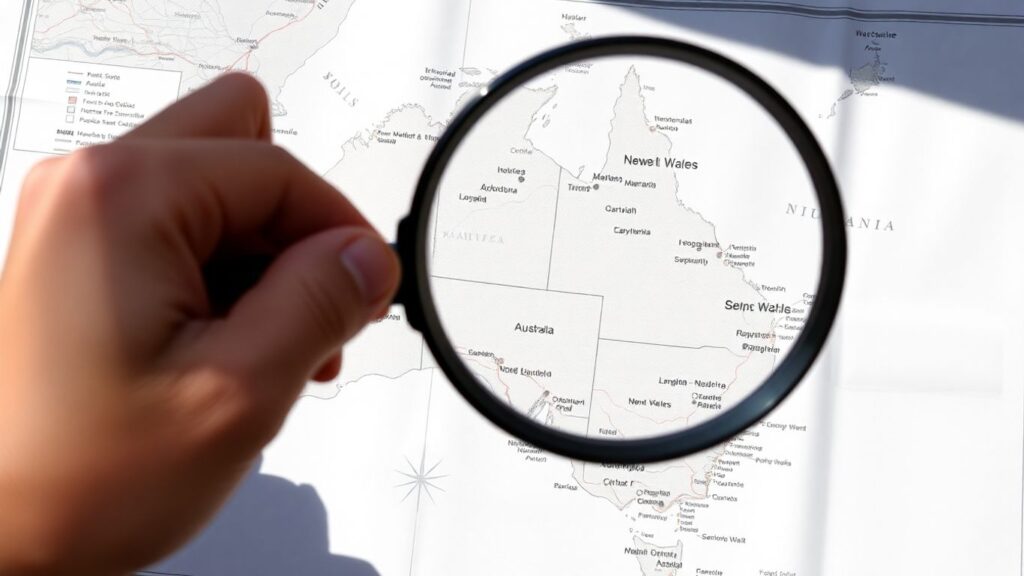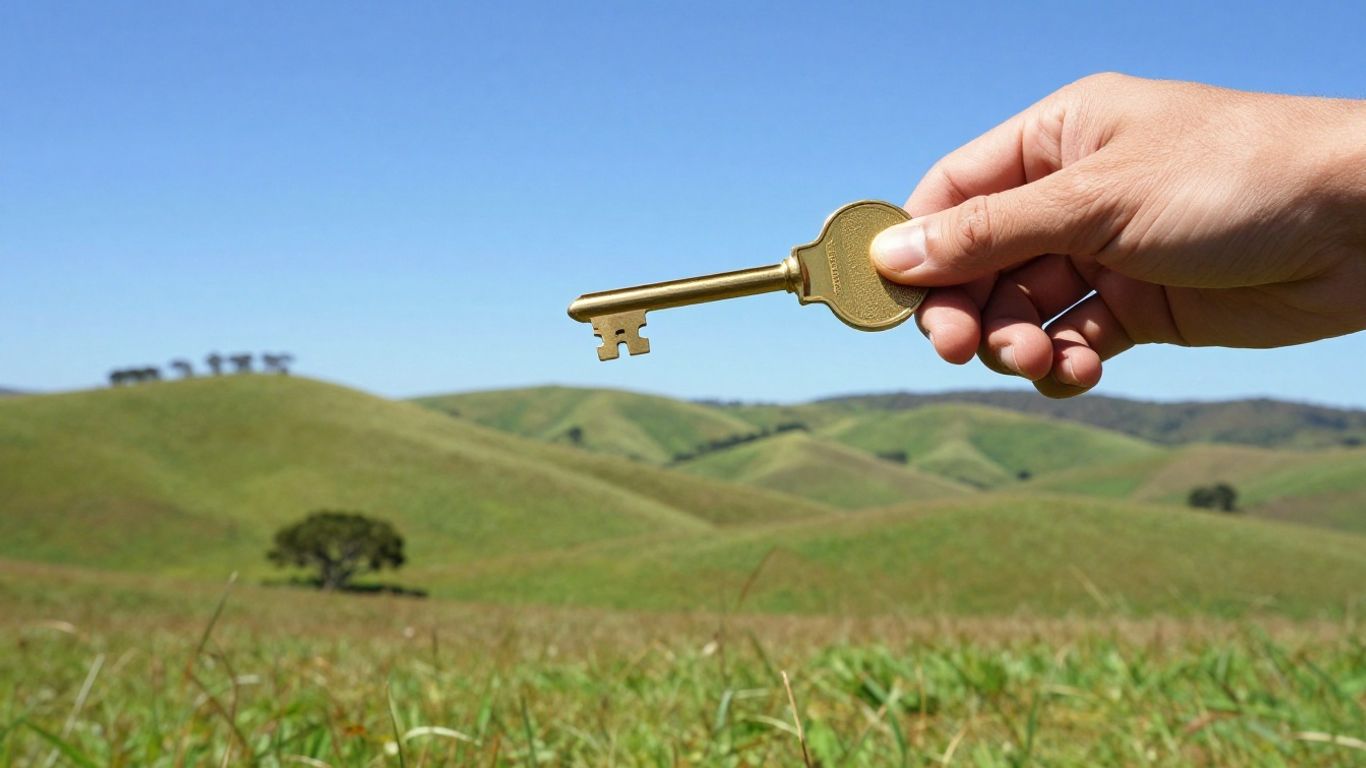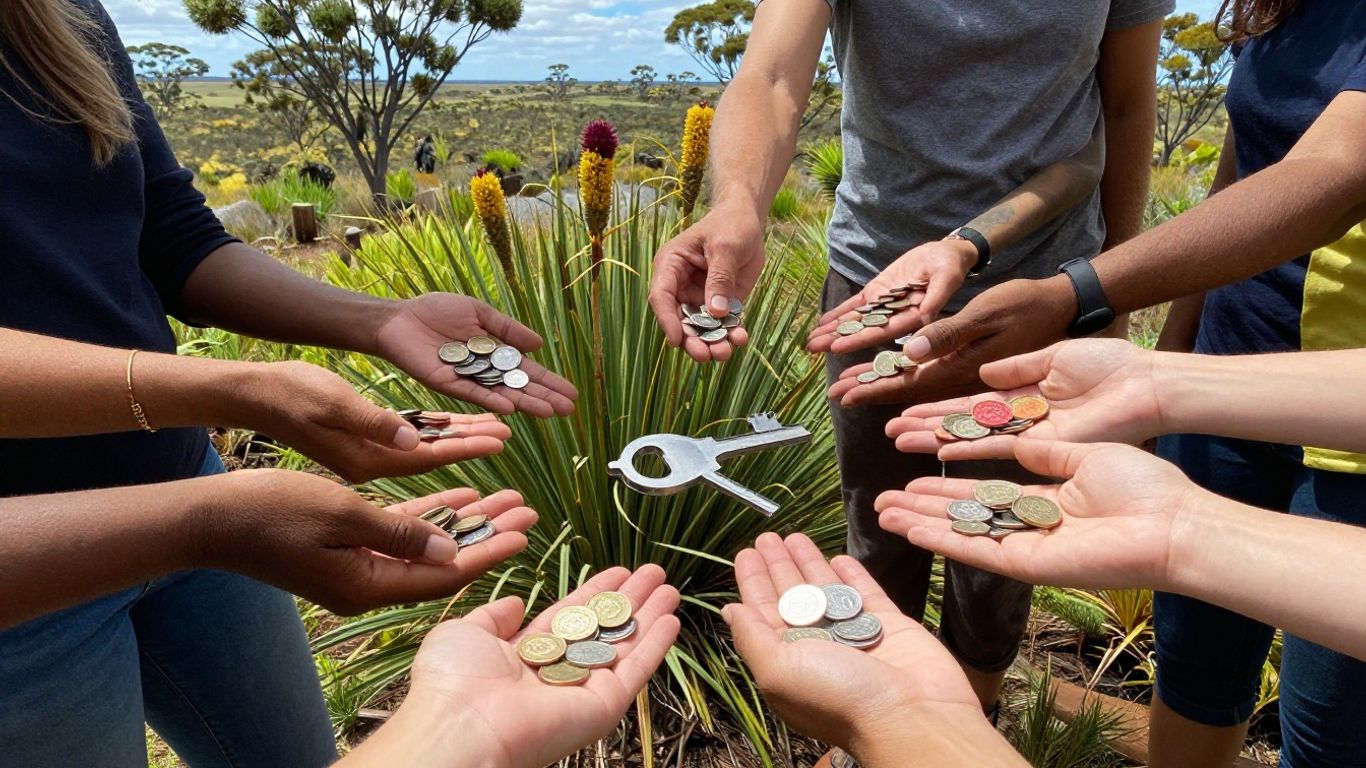Looking for ways to get some extra cash in NSW? It’s not always easy to find, especially when you’re an individual. This guide is here to help you figure out where to look for individual grants in NSW, whether it’s for a personal project, education, or something else entirely. We’ll break down how to find them and what you need to know.
Key Takeaways
- The Grants and Funding Finder is a central NSW Government resource with over 500 grants across 46 agencies, making it easier to find and compare opportunities.
- While direct philanthropic funding for individuals is limited, scholarships, fellowships, and research grants are available, alongside crowdfunding platforms for personal projects.
- Specific NSW grant programs exist, such as the Veteran Community Grants Program for those with military service backgrounds and the Safe Shooting Grant Program for approved shooting organisations.
- Various online resources, including government sites like GrantConnect and subscription databases like The Grants Hub, can help you find grant opportunities.
- Preparing your application involves carefully reading guidelines, researching the grantmaker, and submitting your application on time, avoiding last-minute rushes.
Navigating NSW Grants and Funding

Finding the right grant or funding in New South Wales can feel like searching for a needle in a haystack, but thankfully, the NSW Government has made things a bit easier. They’ve put together a central place to find out about all sorts of grants available across the state. It’s all about making the process more straightforward for everyone, whether you’re an individual, a community group, or a business.
So, what exactly is this Grants and Funding Finder? Think of it as a big online directory. It pulls together information on over 500 different grants from 46 different government agencies. This means you don’t have to hop between dozens of websites anymore. You can search, compare, and get a better idea of what’s out there, all in one spot. They’ve put in filters to help you narrow down your search, so you’re not wading through stuff that doesn’t apply to you. It’s all about making the information clear and easy to get to. They even publish who gets grants, which helps keep things open and honest.
The Finder has been pretty popular, with over 1.2 million visits. It’s helped people with things like disaster recovery and cost-of-living relief. It’s also been integrated with Service NSW, so businesses with a profile there can get pre-filtered grant suggestions. It’s a big step towards making grant information more accessible.
Service NSW is becoming a bit of a hub for government services, and grants are no exception. By linking the Grants and Funding Finder with Service NSW, they’re aiming to streamline the whole experience. If you’re a business with a Service NSW profile, you can get a more personalised list of grants that might be a good fit for your industry. It’s all part of making it simpler to find support and funding opportunities without all the usual runaround. You can check out Service NSW grants for more details on how they’re connecting people with funding.
Having all this information in one place really does make a difference. For starters, it cuts down on the time you spend searching. You can also get a clearer picture of what’s available and how different grants work. This transparency helps build trust in how government funding is managed. It means you can see what’s being funded and understand the process better. Plus, it helps build capability across different agencies, so they’re all working with consistent information and processes. It’s a win-win for both the government and the people looking for support.
Exploring Grant Opportunities for Individuals
Philanthropic Funding Limitations for Individuals
Finding grants specifically for individuals can be a bit of a puzzle. A lot of the funding out there is geared towards organisations, charities, or businesses. This means that as an individual, you might find the pool of directly accessible grants is smaller than you’d expect. Many foundations and trusts prefer to fund established groups with a track record, rather than individuals pursuing personal projects or needs. It’s not impossible, but it definitely requires a more targeted approach.
Scholarships, Fellowships, and Research Grants
This is where individuals often have the best luck. If you’re a student, researcher, or looking to upskill, scholarships and fellowships are designed for you. These can cover tuition fees, living expenses, or research costs. They’re often tied to specific fields of study or research areas, so you’ll need to match your goals to what’s being offered. Keep an eye on university websites, professional bodies, and dedicated scholarship search engines. Some grants are also available for specific research projects, especially in fields like science, arts, and social sciences.
- Scholarships: Generally for students pursuing formal education.
- Fellowships: Often for professionals or researchers undertaking specific projects or development.
- Research Grants: For individuals or small teams conducting specific research.
Crowdfunding Platforms for Personal Projects
If you’ve got a creative project, a community initiative, or even a personal goal that needs a financial boost, crowdfunding is a popular option these days. Platforms like GoFundMe, Kickstarter, or Pozible let you present your idea to the public and ask for donations. Success here often depends on how well you can tell your story and engage people. You’ll need to be clear about what you need the money for and what you’ll achieve. It’s a lot of work promoting your campaign, but it can be a great way to get funding directly from people who believe in your cause.
Seeking Assistance for Personal Costs
Sometimes, individuals need help with specific costs that aren’t covered by traditional grants. This could be for things like emergency financial assistance, support for disability needs, or help with specific living expenses. While not always ‘grants’ in the typical sense, there are organisations and government programs that offer direct financial aid or support services. You might need to look into:
- Community welfare organisations: Many local charities offer direct assistance.
- Government support services: Check Centrelink or NSW government departments for specific programs.
- Disability support services: Organisations focused on disability can provide financial and practical help.
It’s important to remember that even when applying for individual grants, you’ll often need to demonstrate a clear plan and how the funding will be used effectively. Don’t just ask for money; explain the purpose and the expected outcome.
Specific Grant Programs in NSW
So, you’re looking for grants specifically available in New South Wales? That’s a smart move, as focusing your search can save a lot of time. While there are many grants out there, some are tailored for particular groups or purposes within NSW. Let’s take a look at a few examples.
Veteran Community Grants Program
This program is all about acknowledging and supporting our veterans and their families. It’s run by the NSW Department of Veterans Affairs and aims to fund projects that either commemorate the service and sacrifices of military personnel or directly support the wellbeing of the veteran community in NSW. You can get up to $3,000 for a project. Applications close on November 11, 2025, at 5:00 pm. It’s worth noting that if you’ve received this grant for three years running, you can’t apply for the fourth. Also, grants for Anzac Day events are handled differently, often through RSL NSW or local councils.
Safe Shooting Grant Program
If you’re involved with sport shooting in NSW, this program might be for you. The NSW Department of Creative Industries, Tourism, Hospitality and Sport manages it. The goal here is to make shooting facilities safer, more inclusive, and accessible for everyone. They want to boost participation, especially for groups like women, people with disabilities, First Nations peoples, and those from diverse cultural backgrounds. You can apply for between $10,000 and $50,000. The deadline for this is November 17, 2025, at 1:00 pm. To be eligible, you generally need to be an incorporated, not-for-profit shooting organisation, a registered shooting range, or a relevant NSW State Sporting Organisation.
It’s important to check the specific categories within the Safe Shooting Grant Program, as there might be different focuses or requirements depending on the category you’re applying under.
NSW Environmental Trust Funding
While not detailed in the provided snippets, the NSW Environmental Trust offers various grants for projects that benefit the environment in NSW. These can range from conservation efforts and pollution reduction to environmental education and research. They often have different funding rounds and specific focus areas throughout the year, so it’s a good idea to check their website regularly for updates on what’s available and when applications open. These grants can be quite substantial and are aimed at organisations and sometimes individuals undertaking important environmental work.
Resources for Finding Grants

Australian Government Grant Resources
Looking for funding can feel like searching for a needle in a haystack, right? Luckily, the Australian Government has put together a pretty handy service to help you out. It’s called the Grants and Funding Finder. Think of it as a central spot where you can check out all sorts of grants offered by different NSW government agencies. They’ve put a lot of effort into making it easy to use, with filters so you can actually find what you’re looking for without pulling your hair out. It’s been used a lot, which shows people find it useful for things like disaster relief or help with energy costs. They even link it up with Service NSW now, so if you have a business profile, you might get grants suggested just for you. It’s all about making things clearer and building trust in how government money is handed out.
Subscription-Based Grant Databases
Beyond the government’s own finder, there are other places you can look, though some come with a price tag. For instance, The Grants Hub is a well-known online database. It lists a huge number of grant opportunities across Australia – we’re talking over 1,500. It’s a subscription service, so you pay a fee to get access to all that information. It can be a good option if you’re serious about finding grants and want a really extensive list to sift through. It’s worth checking out their website to see if the subscription cost makes sense for your needs.
Organisations Supporting Not-for-Profits
If you’re running a charity or a not-for-profit organisation, there are specific resources designed to help you. While individual people generally can’t get funding from philanthropic trusts and foundations (they’re usually limited to funding charitable organisations), these bodies are a different story. You’ll need to make sure your organisation has the right charitable status from the ATO, like being endorsed as a Deductible Gift Recipient (DGR) or an income tax-exempt charitable entity. Once you’ve got that sorted, you can start looking for grantmakers whose focus areas match what your organisation does. Some useful places to start your search include:
- The Grants Hub: As mentioned, a big database of opportunities.
- Funded (South Australia specific): A free platform connecting charities and funders in SA.
- Australian Cultural Fund: Great for artists and arts organisations looking to fund their projects and receive tax-deductible donations.
Finding the right grant often means doing a bit of homework. It’s not just about finding a grant that sounds good; you need to make sure your project or organisation actually fits what the funder is looking for. Read the guidelines carefully, and if you’re unsure, don’t be afraid to contact the organisation directly before you submit anything. It can save a lot of time and disappointment later on.
Preparing Your Grant Application
So, you’ve found a grant that looks like a good fit for what you need. That’s awesome! But before you get too excited, there’s a bit of homework to do. Applying for grants isn’t just about filling out a form; it’s about showing the grantmakers why your project or need is the one they should support. It takes time and a bit of effort, but getting it right makes a huge difference.
Understanding Grant Guidelines
This is probably the most important step, honestly. Every grant has its own set of rules, and you absolutely have to read them. Seriously, don’t skim. These guidelines tell you who they want to fund, what kind of projects they’re interested in, how much money they’re giving out, and what you can and can’t spend the money on. If your project doesn’t line up with what they’re looking for, you’re wasting your time, and theirs. Check the organisation’s website for these details. Sometimes, they might not have public rounds, and they prefer to reach out to people they already know or have researched. It’s worth checking if your values align with the funder’s too.
Researching Grantmaking Organisations
Beyond just reading the guidelines for the specific grant you’re eyeing, take a step back and look at the organisation offering the money. What’s their history? What other projects have they funded? Do they have a particular focus or mission? Understanding their motivations can help you tailor your application to speak directly to what they care about. It’s not just about what you need; it’s about how supporting you helps them achieve their goals. Think of it as a partnership.
Tips for Submitting Your Application
Once you’ve got all your ducks in a row, it’s time to actually write the application. Follow the guidelines to the letter. If something isn’t clear, don’t guess – call the organisation and ask. They’d rather you ask a question than submit a muddled application. And please, for the love of all that is good, don’t leave it until the last minute. Things always go wrong when you rush. A well-thought-out application submitted on time is way better than a rushed one that misses the deadline. If you’re feeling overwhelmed, remember that you can always get help. For instance, you can contact Service NSW by calling 13 77 88 or by booking a call with the Service NSW Business Bureau if you need assistance with applying for a grant.
Here’s a quick checklist to keep you on track:
- Read all guidelines thoroughly.
- Ensure your project aligns with the funder’s goals.
- Gather all required supporting documents well in advance.
- Proofread your application multiple times.
- Submit your application before the deadline.
Applying for grants can feel like a bit of a puzzle, but breaking it down into these steps makes it much more manageable. Focus on clarity, honesty, and showing how your need fits their mission.
Alternative Funding Avenues
So, you’ve looked into grants, and maybe they’re not quite hitting the mark for what you need, or perhaps you’re an organisation looking beyond just grant applications. That’s totally fine! There are heaps of other ways to get the funds you need to keep things going or to kickstart a new project. It’s all about thinking a bit outside the box and exploring what else is out there.
Fee-for-Service and Service Contracts
This is a pretty common way for organisations, especially those in the community services sector, to bring in money. Basically, you offer a service that people or other organisations pay for. Think of it like running a business, but with a social purpose. For example, a disability support service might charge a fee for providing therapy sessions or in-home care. It’s a way to generate income directly from the work you do, which can be more stable than relying on one-off grants. Service contracts are similar, but they usually involve a formal agreement with another organisation (like a government department or a larger non-profit) to deliver a specific service over a set period. This often means a more predictable income stream, which is a big plus when you’re planning ahead.
Community Fundraising Initiatives
This is where you get your community involved directly in raising money. It’s not just about asking for donations; it’s about creating events or campaigns that people can participate in. Think fun runs, bake sales, trivia nights, or even online challenges. When people contribute to a community fundraiser, they often feel a stronger connection to the cause. It also helps raise awareness about what you do. Some organisations even run annual giving campaigns, often around the end of the financial year, to encourage ongoing support from their existing network of donors. It takes effort, sure, but the buy-in from the community can be really powerful.
Corporate Partnerships
Getting businesses on board can be a game-changer. This isn’t just about asking for a cheque, though that can happen! Corporate partnerships can take many forms. A business might sponsor a specific event or program you’re running. They might offer in-kind support, like donating office supplies, providing volunteer time from their staff, or offering pro-bono professional services (like marketing or accounting help). Sometimes, a company might match donations made by their employees or customers. Building these relationships requires showing businesses how partnering with you aligns with their own goals, like improving their public image or engaging their staff. It’s a two-way street, and when it works well, it benefits everyone involved.
Finding the right funding mix is key. Relying on just one source can be risky. By exploring fee-for-service, community fundraising, and corporate partnerships, you can build a more resilient financial base for your organisation or project. It’s about diversifying your income streams so you’re not putting all your eggs in one basket.
Wrapping Up Your Grant Search
So, finding grants in NSW can feel like a bit of a puzzle, right? We’ve looked at a few places to start, like the NSW Government’s Grants and Funding Finder, which is pretty handy for seeing what’s out there all in one spot. Remember, it’s not just about finding the money, but making sure your project fits what the grant is for. Always read the fine print and get your application in on time. There are other resources too, like The Grants Hub or even looking into crowdfunding if grants aren’t the right fit. Keep at it, and good luck with your funding quest!
Frequently Asked Questions
What is the Grants and Funding Finder in NSW?
The Grants and Funding Finder is a special website run by the NSW Government. It’s like a big online library where you can find information about over 500 different grants from 46 government departments, all in one place. This makes it much easier for people and businesses to find and apply for the help they need.
Can individuals get grants from charitable organisations in NSW?
Generally, charities and foundations in Australia can only give grants to other charities or organisations, not directly to individuals for personal costs. However, individuals might find funding through scholarships, research grants, or by using crowdfunding websites where people donate to personal projects.
Where can I find government grants in Australia?
You can find Australian Government grants on a free service called GrantConnect. It lists all the grants the government is offering and also those that have already been given out. There are also other online databases like The Grants Hub or GEM Local that can help you find different funding opportunities.
What kind of projects does the Veteran Community Grants Program support?
The Veteran Community Grants Program helps fund projects that celebrate and teach people about the service and sacrifices of Australian military members. It also supports activities that aim to improve the well-being of veterans and their families in NSW. Grants can be up to $3,000.
What is the Safe Shooting Grant Program for?
The Safe Shooting Grant Program aims to make shooting sports facilities in NSW safer and more accessible for everyone. It wants to encourage more people to participate in shooting sports, especially groups who might face barriers, like women, people with disabilities, and those from diverse backgrounds.
How can I make sure my grant application is successful?
To improve your chances, always read the grant guidelines very carefully to see if your project fits. Do your homework on the organisation offering the grant to make sure your goals match theirs. If you’re unsure about anything, don’t hesitate to contact the organisation for clarification before you submit your application. And remember, don’t leave it until the last minute!





